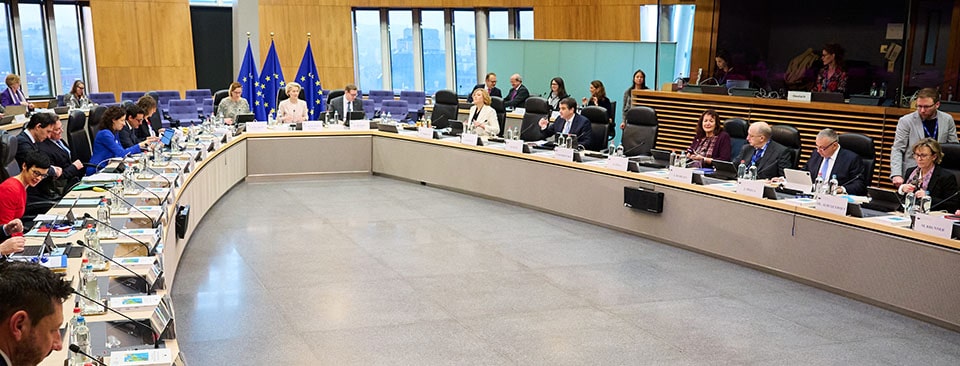
Number of firms hit by CSRD to drop by 80%
The European Commission has proposed changes to its sustainability rules that would remove around 80% of companies from the scope of one of its directives on reporting.
The proposals are part of a package of measures that the EU body says is aimed at simplifying EU rules and boosting competitiveness.
In advance of the announcement today (26 February), some investors and think-tanks had expressed concern that the proposals would represent a ‘u-turn’ on the EU’s sustainability measures.
The commission says that the proposals announced today, if implemented, would save companies around €6.3 billion in administrative costs.
The legislative proposals must still be submitted to the European Parliament and the EU Council for their consideration, a process that could take months.
Focus on larger firms
One of the main proposals is to remove around 80% of companies from the scope of the Corporate Sustainability Reporting Directive (CSRD). This will be done by increasing the threshold for reporting from companies with 250 employees to those with 1,000.
The commission says that this will focus the reporting obligations on the largest companies, which are more likely to have the biggest impacts on people and the environment.
Another proposal would postpone until 2028 the reporting requirements for companies currently in the scope of CSRD that are required to report from 2026 or 2027.
The measures also affect the EU Taxonomy Regulation, a classification system that provides a common definition of economic activities that can be considered ‘environmentally sustainable’.
The commission plans to reduce the burden of taxonomy reporting obligations and limit them to the largest companies.
Less frequent CSDDD reports
There also key changes to the reporting requirements under the Corporate Sustainability Due Diligence Directive (CSDDD).
The commission says that it will simplifying reporting requirements to avoid unnecessary complexities and costs.
Companies’ systematic due-diligence requirements will focus on direct business partners, while the proposals would cut the frequency of periodic assessments and monitoring of their partners from annually to every five years.
The amount of information that large companies can request from smaller companies about their supply chains will also be limited, while the commission also aims to harmonise requirements across the EU.
The commission also wants to give companies more time to prepare to comply with the new requirements by postponing the application of the sustainability due-diligence requirements for the largest companies by one year (to 26 July 2028), while advancing the adoption of the guidelines by one year (to July 2026).
Exemption for small importers
Other changes are aimed at excluding small importers from obligations under the carbon border adjustment mechanism (CBAM), while simplifying the rules for companies that remain in scope.
The CBAM is aimed at reducing ‘carbon leakage’, which occurs when EU-based companies move production abroad to take advantage of lower environmental standards, or when EU products are replaced by more carbon-intensive imports.
European Commission President Ursula von der Leyen said that the changes would make life easier for EU businesses, “while ensuring we stay firmly on course toward our decarbonisation goals”.
The commission intends to propose further ‘omnibus’ packages to simplify rules in other areas of EU law.
Fears of 'legal uncertainty'
Aleksandra Palinska (executive director at the European Sustainable Investment Forum) said that the plans to reopen the CSRD and sustainabilty reporting standards to negotiation had created legal uncertainty for investors and businesses.
She added that the proposals would harm “the first movers” who had already prepared their first sustainability reports or started working towards compliance.
“Drastic changes to the scope of sustainability-reporting rules will limit investor access to comparable and reliable sustainability data and impair their ability to scale up investments for industrial decarbonisation and long-term growth,” Palinska stated.
“Voluntary reporting by companies will not fill this data gap,” she added.
She also criticised plans to delete requirements for the largest EU companies to implement transition plans and "water down" the rules on environmental and human-rights due diligence across their value chain.